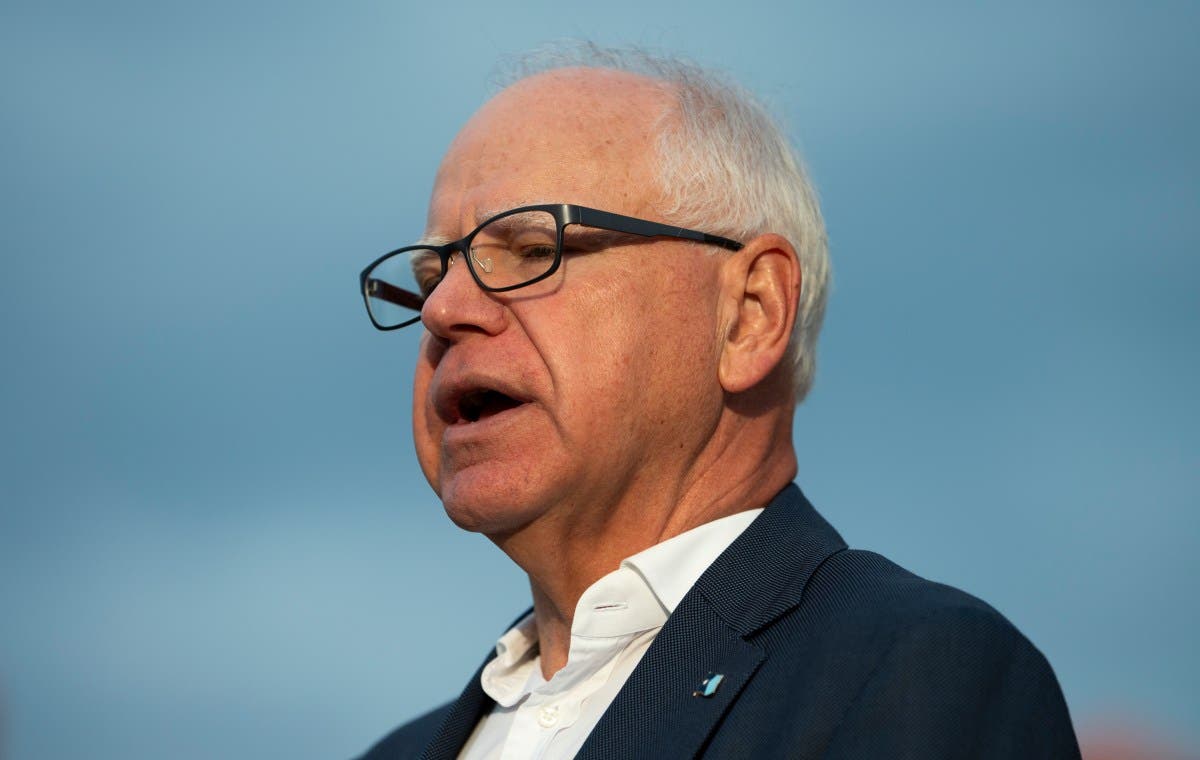Health
Minnesota Governor Highlights Urgency of Rural Health Care Access

Minnesota Governor Tim Walz addressed crucial rural health care challenges during the recent Summit on the Future of Rural Health Care held in Sioux Falls, South Dakota. In a video message, he emphasized that making health care accessible, high quality, and sustainable in rural areas is a significant challenge, describing it as a “hell of a tall order.” The summit gathered leaders from various sectors including health care, technology, business, and academia to explore solutions for improving health care access in underserved communities.
In his opening remarks, Bill Gassen, President and CEO of Sanford Health, reiterated the summit’s mission. He stated that it aims to ensure “every patient, regardless of ZIP code, has access to world-class care.” Rural regions face multiple health care obstacles such as limited access, a shrinking workforce, an aging population, and specific chronic health issues. Gassen noted that the event focused on the themes of access, quality, and sustainability, which were central to each of the eight panels and discussions throughout the day.
Despite these challenges, Gassen expressed optimism about the resilience of rural communities. “Those people serve as inspiration for the work our team does every day,” he remarked, highlighting the commitment to engaging in solution-oriented discussions rather than merely lamenting existing problems. He also pointed out that the solutions discussed are not exclusive to rural areas but could also benefit urban health systems.
The summit featured speakers from reputable organizations, including the American Hospital Association, Epic, and the American Medical Association. Gassen stressed the importance of breaking down silos within the health care sector to leverage collective knowledge and implement effective changes in rural and underserved communities.
In his address, Governor Walz acknowledged the pressing need for improved rural health care access in Minnesota. He pointed out that the state faces “demographic, economic, and political headwinds” in delivering high-quality care to rural residents and noted that the summit’s discussions were timely and urgent. He emphasized that collaboration is essential for progress, stating, “It’s only when we work together, listen, and turn ideas into action that we can seize the opportunities and weather the storms ahead of us.”
Walz highlighted several health innovations occurring in Minnesota, including the expansion of telehealth services which help connect patients with specialists over long distances. He mentioned the development of new medications and gene therapies to ensure advancements are available to all Minnesotans, particularly those covered by the state’s public health care program.
The summit also featured remarks from Mehmet Oz, Administrator of the Centers for Medicare & Medicaid Services, who spoke via video about the administration’s goals regarding health care improvements.
Reflecting on recent legislative changes, Walz previously convened a roundtable in September to discuss the implications of the Trump administration’s “Big Beautiful Bill” on health insurance costs in Minnesota. He expressed concerns that the new legislation could jeopardize the stability of the state’s health care system. “Minnesota is home to some of the best health care systems in the world. We are going to keep fighting to protect affordability and access,” he asserted.
As the summit concluded, the consensus among participants was clear: the path toward enhanced rural health care is fraught with challenges, but through collaboration and innovation, there is hope for a more sustainable future.

-

 Science2 months ago
Science2 months agoUniversity of Hawaiʻi Joins $25.6M AI Project to Monitor Disasters
-

 Business2 months ago
Business2 months agoForeign Inflows into Japan Stocks Surge to ¥1.34 Trillion
-

 Top Stories2 months ago
Top Stories2 months agoBOYNEXTDOOR’s Jaehyun Faces Backlash Amid BTS-TWICE Controversy
-

 World2 months ago
World2 months agoBoeing’s Merger with McDonnell Douglas: A Strategic Move Explained
-

 Top Stories2 months ago
Top Stories2 months agoCarson Wentz Out for Season After Shoulder Surgery: Urgent Update
-

 Entertainment2 months ago
Entertainment2 months agoSydney Sweeney Embraces Body Positivity Amid Hollywood Challenges
-

 Top Stories2 months ago
Top Stories2 months agoMarc Buoniconti’s Legacy: 40 Years Later, Lives Transformed
-

 Lifestyle2 months ago
Lifestyle2 months agoKelsea Ballerini Launches ‘Burn the Baggage’ Candle with Ranger Station
-

 Health2 months ago
Health2 months agoInnovative Surgery Restores Confidence for Breast Cancer Patients
-

 Sports2 months ago
Sports2 months agoSteve Kerr Supports Jonathan Kuminga After Ejection in Preseason Game
-

 Entertainment2 months ago
Entertainment2 months agoZoe Saldana Advocates for James Cameron’s Avatar Documentary
-

 Science2 months ago
Science2 months agoChicago’s Viral ‘Rat Hole’ Likely Created by Squirrel, Study Reveals








